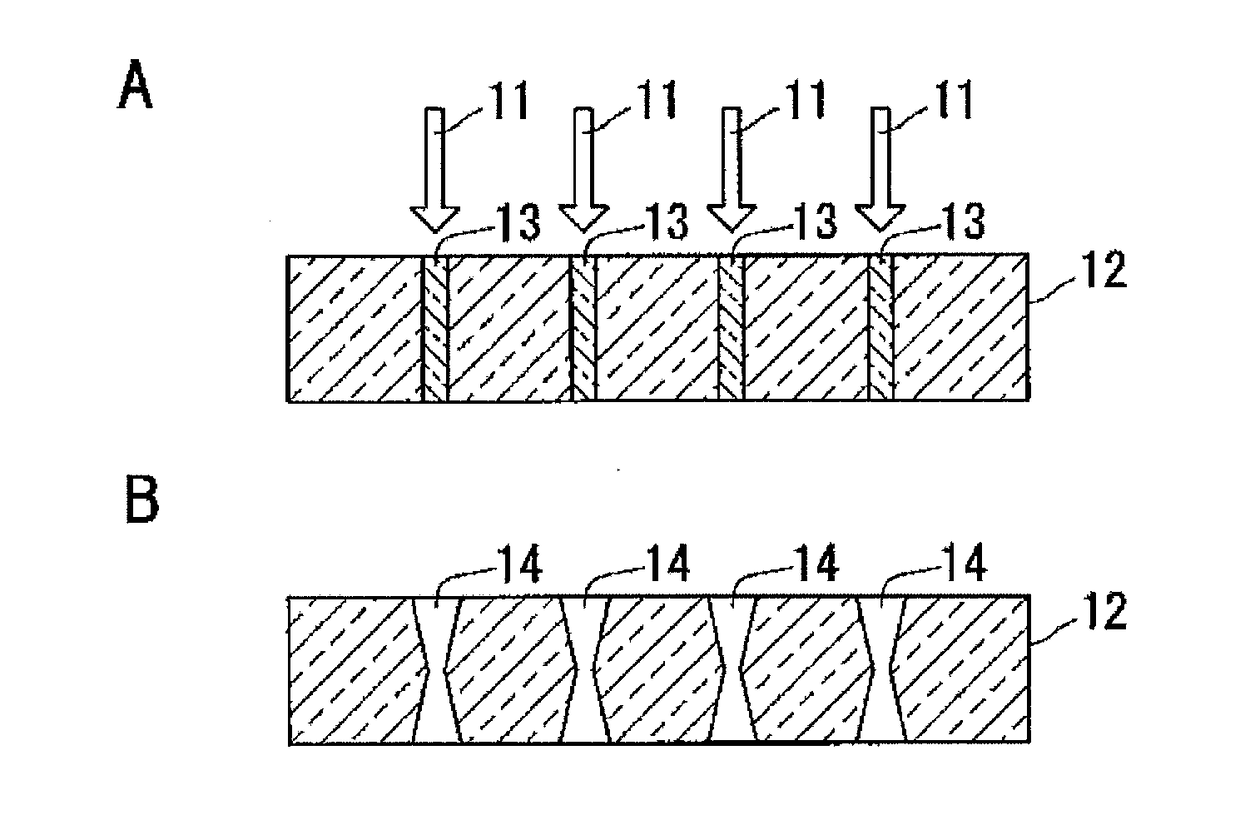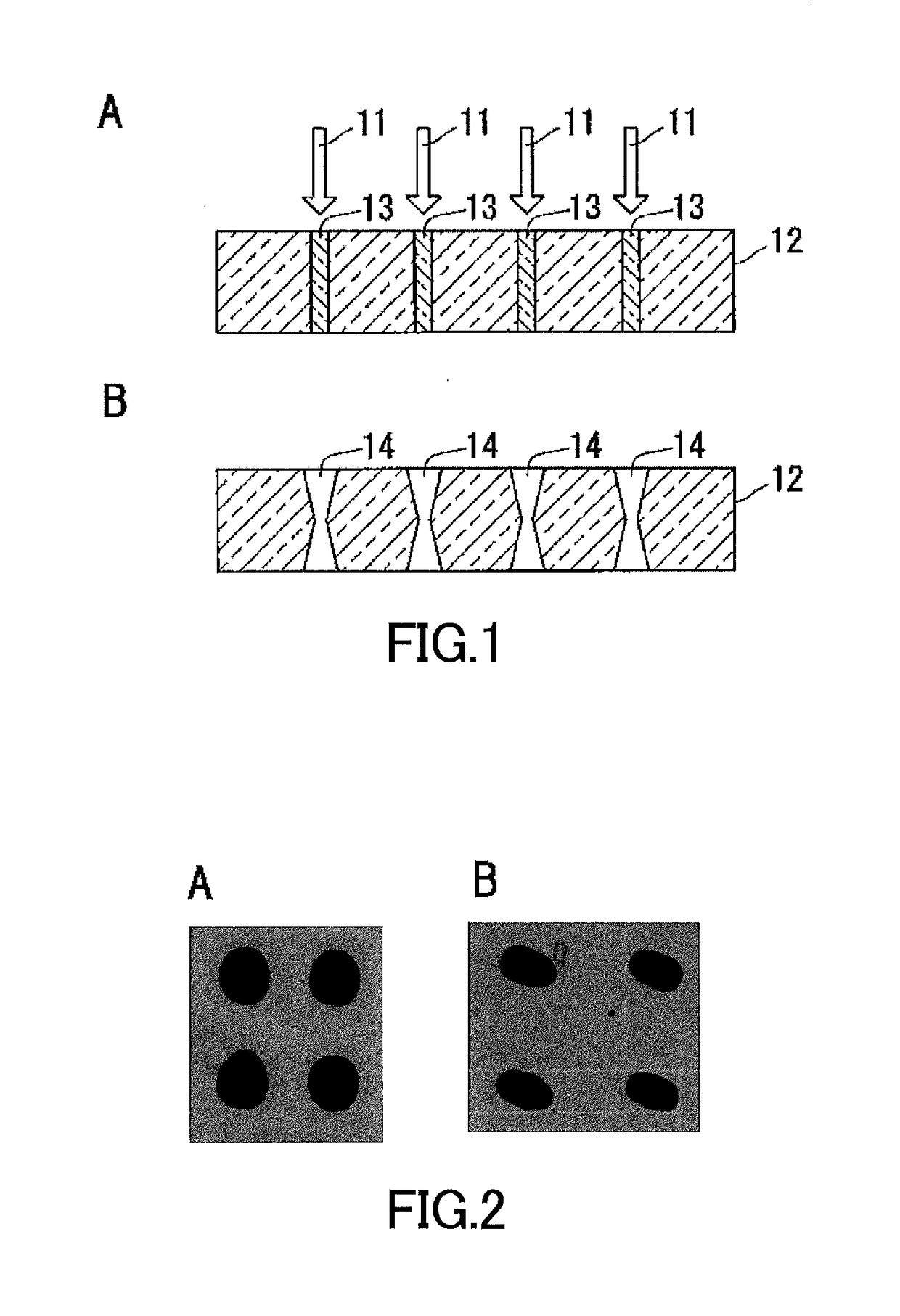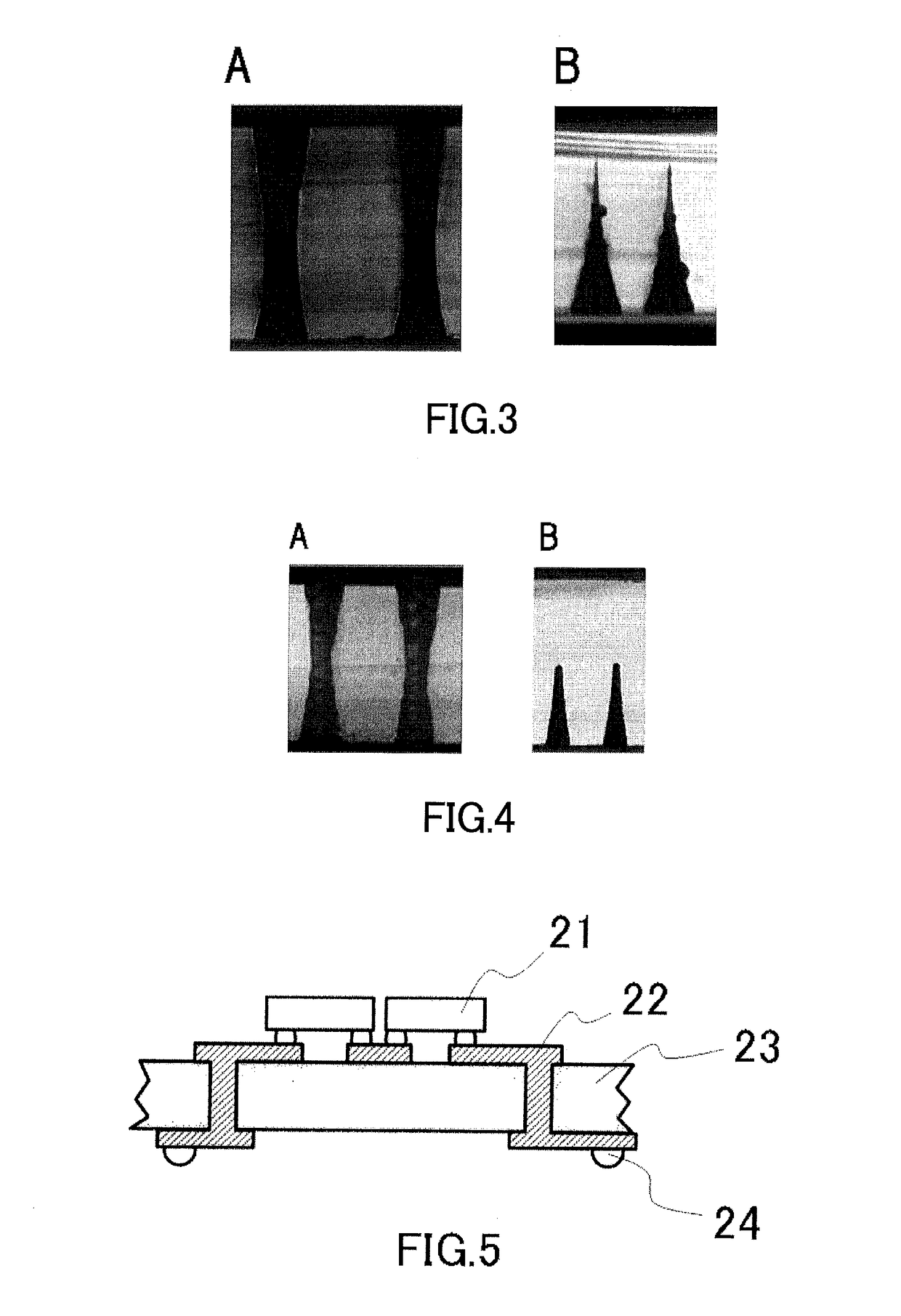Glass for laser processing and method for producing perforated glass using same
a laser processing and perforation technology, applied in glass making apparatus, glass making tools, welding/soldering/cutting articles, etc., can solve the problems of high cost, high production cost of monocrystalline silicon, and high cost of silicon wafers
- Summary
- Abstract
- Description
- Claims
- Application Information
AI Technical Summary
Benefits of technology
Problems solved by technology
Method used
Image
Examples
examples
[0162]Hereinafter, the present invention will be described in more detail by way of examples. The present invention is by no means limited by these examples, and many modifications are possible by any ordinarily skilled person in the art within the technical concept of the present invention.
[0163]Examples in which glass substrates having different compositions were subjected to hole forming will be described below, along with the description of hole quality evaluations. The hole quality evaluations were made according to the criteria described below. All of the evaluations were made by observation or examination after laser irradiation and completion of perforation by etching. “Good” means a practically acceptable level, while “poor” means an unacceptable level.
[0164](1) Circularity or Contour
[0165]Openings of approximately circular holes formed in each glass substrate (or in its surface) were evaluated. The glass substrate was rated as “good” if the ratio of the largest diameter to...
PUM
| Property | Measurement | Unit |
|---|---|---|
| wavelength | aaaaa | aaaaa |
| temperature | aaaaa | aaaaa |
| height | aaaaa | aaaaa |
Abstract
Description
Claims
Application Information
 Login to View More
Login to View More - R&D
- Intellectual Property
- Life Sciences
- Materials
- Tech Scout
- Unparalleled Data Quality
- Higher Quality Content
- 60% Fewer Hallucinations
Browse by: Latest US Patents, China's latest patents, Technical Efficacy Thesaurus, Application Domain, Technology Topic, Popular Technical Reports.
© 2025 PatSnap. All rights reserved.Legal|Privacy policy|Modern Slavery Act Transparency Statement|Sitemap|About US| Contact US: help@patsnap.com



